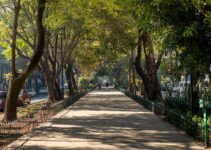As the old saying goes, birds of a feather flock together – especially when there are ready-made food sources available. This can lead to an array of issues such as neighbor disputes, health concerns, and a negative impact on the birds themselves, giving local governments reason to consider passing backyard bird feeder legislation.
View sample backyard bird feeder legislation >
Giving a hoot
The pandemic impacted our lives in more ways than we can count – including how we entertained ourselves without leaving home. Some turned to puzzles and board games. Many turned to streaming and binging shows. And some became first-time cooks and bakers. But staying indoors all the time was limiting and sometimes claustrophobic.
With eight or more hours at the office, long commutes, and after-school intramurals taken out of the equation, our neighborhoods and yards captured our attention. Sounds of birds singing or cawing, sights of red Cardinals, blue Jays, bright yellow finches, and their various activities became the focus of a COVID-induced home-bound population.
As we began venturing outdoors into parks and backyards, our relationship with nature burgeoned, with many taking up birdwatching as a new hobby. Some decided to bring it closer to home. With a new interest in wild birds, bird feeders started flying off the shelves and into residential neighborhoods. Over the past two years, businesses that sell seed, feeders, and bird watching accessories have estimated sales have increased from 30 – 50%.
For the birds
Bird watching and feeding provides a variety of benefits to those who partake. It helps expand our world beyond whatever we’re scrolling through on our phones, obsessing over computer games or reality shows, and worrying about the state of the world. From being an educational activity for people of all ages to helping control insects and pollinating flowers, adding a bird feeder or two in a yard can be a valuable addition to homelife and support a sense of well-being.
Putting up a squawk
Bird feeders are not for everyone, however, and can bring some less positive consequences.
For instance, if feeders are not properly placed and maintained, it can draw unwanted wildlife to the yard. Racoons, squirrels, skunks, mice, and larger animals like coyotes, deer, and bears are sometimes unwelcome visitors to an unkempt feeding station.
Sweeping up seed waste and taking feeders down at night when birds are not actively seeking food is a good practice. This includes nectar feeders or jelly dishes for hummingbirds and Orioles. Once these mammals know that a nighttime food source is available, they will return and can become a nuisance for homeowners.
Noise can also be a problem with backyard feeders. Starlings and crows are indiscriminate when it comes to the foods they will eat. So even if seed is meant for songbirds or other less intrusive or noisy birds, in large numbers, even sparrows and blue jays can cause quite a din that neighbors may not appreciate.
Probably the most concerning issue regarding backyard bird feeders has to do with the spread of disease. Unclean feeders can accumulate mold and that is harmful to the birds. Additionally, attracting large groups of birds to a small backyard area makes disease easier to spread. In recent years, avian diseases have caused some states to mandate that feeders be removed from yards in an effort to minimize the impact and spread of illness.
Quacking down
Primarily in an effort to control vermin and dangerous conditions related to large animals in residential areas, most legislation enacted by municipalities relates to seasonal limitations, height restrictions, types of feeders allowed, and placement of feeders away from neighboring properties. Outright banning of bird feeders for wild birds occurs legislatively, but it is rare.
Useful examples of backyard bird feeder legislation from the eCode360® Library
If your community is interested in legislating or updating ordinances to regulate residential backyard bird feeders, here are some useful examples that can be found in our eCode360 Library:
Looking for something else? Search the eCode360 library for the topics and terms you’re specifically looking for.
Updating your municipal code is vitally important
Submit your code updates as soon as possible and ensure constituents and local government officials are always referencing and working with the most up-to-date resources. Make it part of your Board meeting close-out process to send your adopted legislative changes to General Code when everything from that meeting is already right at hand.
General Code clients can easily send legislation to [email protected] (If you’re located in Texas, please submit your legislation to [email protected]) For tips that will allow us to process your code updates most efficiently, click here.
Our Client Care team is available to explain the options and benefits of scheduled code updates or any other code-related questions you might have.
Sources:
- Feeding birds in your backyard
- To Feed or Not to Feed Wild Birds
- Birdwatching Is a Bright Spot in a Pandemic-Stricken Economy
- As Coronavirus Sows Turmoil and Fear, Seeking Solace in Nature’s Calendar
- Benefits of Bird Feeding
- Disease outbreak sparks calls to take down bird feeders
- Avian Influenza Outbreak: Should You Take Down Your Bird Feeders?
- Is It Legal to Feed Wild Animals?
- Hoboken Bans Feeding Birds And Other Wildlife
- eCode360 Library






